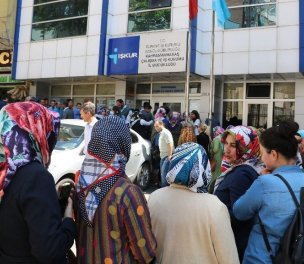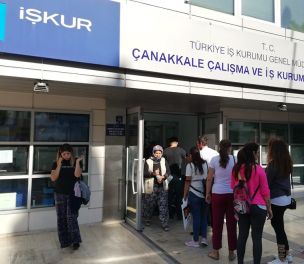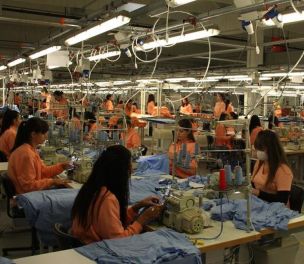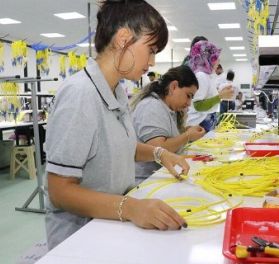Image: Pixabay
Click to read the article in Turkish
During the Covid-19 pandemic, as many as 13 million people have lost their jobs, according to a study by the Confederation of Progressive Trade Unions of Turkey Research Center (DİSK-AR).
Also, the unemployment rate has reached 39 percent according to the broad definition of unemployment, said Arzu Çerkezoğlu, the DİSK Chair, at a press briefing, where the findings of the study were announced.
"Being unionized has limited the damage created by Covid-19. It is possible to say that Covid-19 has created much greater damage on laborers who work at non-union and unregistered workplaces," she said.
Here are highlights from the study conducted among DİSK member workers:
The way of work has changed
Short-time work, working from home and alternative working have become widespread as 63 percent of the DİSK members said their way of work has changed. Workers also took leaves more often than they used to do. Some workers took annual leave while some were put on administrative leave due to having a chronic disease.
Among those working in the private sector, 76 percent said their way of work has changed while 81 percent of the women gave the same answer.
Workers have had income losses
Due to the pandemic, workers' working time has decreased, which led to income losses.
Among the participants, 36 percent said their income has decreased. 47.7 of the women and 34.2 percent of the men said they did not receive full salary, overtime pay or social payments.
75 percent have faced economic difficulties
The pandemic has caused economic difficulties for 75 percent of the workers. More than 25 percent said their debts have increased and 19.4 percent said they could not make the minimum payment for their credit cards. Also, 13.7 percent of the workers said they had difficulty paying bills.
Wortimes have decreased
Workers' worktimes have decreased because a significant chunk of workplaces halted buying goods and services, which caused worktimes to decrease. Among all workers, 41 percent said their worktimes have decreased. In the private sector, it was 51 percent.
Women workers have been affected more
The study has found that women receive lower wages than men, their way of work has changed more and worktimes have decreased more. While their wage time has increased, their domestic burden has increased.
27 percent of DİSK workers received allowances
The practices of short-time working allowance and unpaid leave allowance have become widespread during the pandemic. Half of the private-sector workers and 27 percent of DİSK-member workers have received allowances from the Turkish Employment Agency (İŞKUR).
On the other hand, 92 percent of the workers said they have not received an allowance from any other entity than İŞKUR. "The loss of wages during the Covid-19 outbreak have been covered to a very limited extent by İŞKUR allowances and social aid programs," the report said.
Workers can't make ends meet if their flow of income is interrupted
If their flow of income is interrupted, 63 percent of the workers can make ends meet for less than one month. 29 percent said 1-3 months and 3.8 percent said 3-6 months.
40 percent of workers prefer cheaper food
The pandemic has also changed workers' spending preferences for food. While some have been preferring more expensive products for health reasons, 40 percent said they have been preferring cheaper food.
29 percent said they or their friends contracted the virus
Among all workers, 1.6 percent said they contracted coronavirus while 1.9 percent of the private sector workers were infected. 29.4 of the participants said either they or their friends contracted the virus.
Production was halted in 15 percent of workplaces
15.4 percent of the workers said production halted in their workplaces due to a coronavirus case. 7.7 percent said the department the case was seen was closed, 5.8 percent said their employers halted work and 1.9 said they exercised their right to avoid working.
53 percent say measures are not adequate
53 percent of the workers said precautions against the virus at the workplace and during commute while 47 percent said they found measures adequate.
82 percent feel their job is in danger
81.8 percent of the workers said they feel themselves and/or their jobs are in danger and nearly 84 percent said they perceive Covid-19 as a threat to their economic situation. (TP/VK)








as.jpg)
as.jpg)



